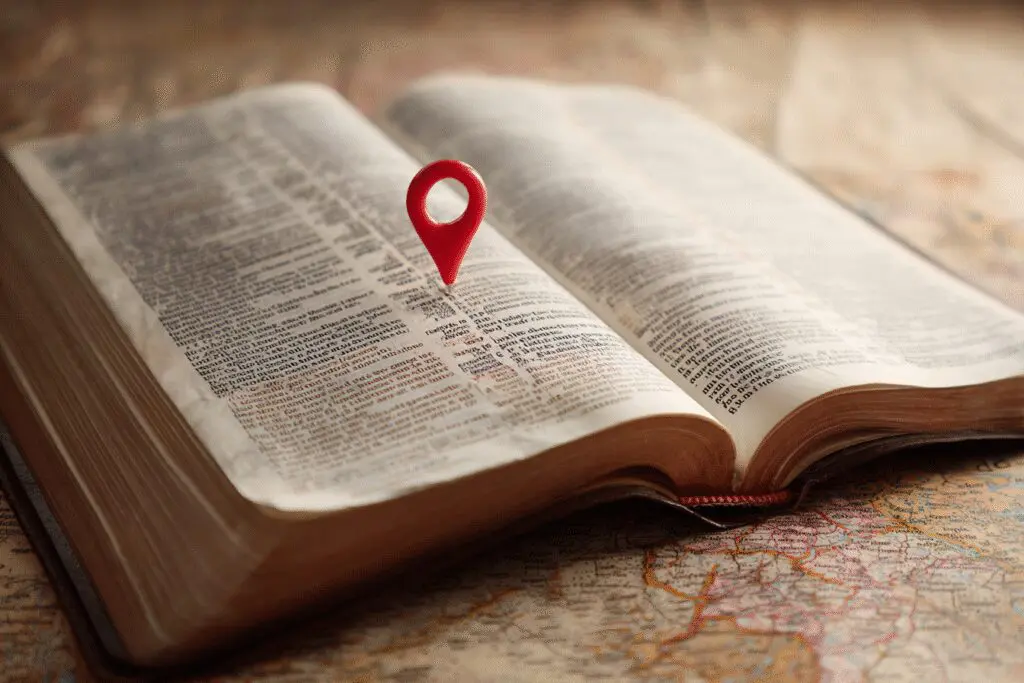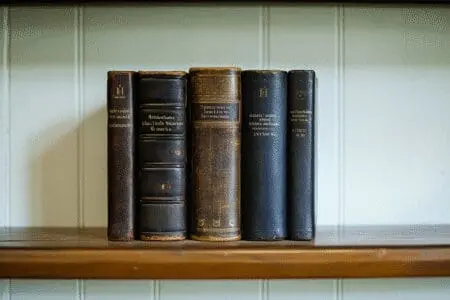Have you ever picked up a Bible? It can feel huge. It’s thick. The pages are thin. You might open it to a random page. Then you see a long list of names. Or maybe some confusing laws. It is easy to feel lost. It is easy to just close the book. I have been there. Many people have. So, where should I start reading the Bible? That is the big question. And it is a great one.
You do not have to feel overwhelmed. There is a simple path. This guide will give you that path. It is a starting line for a great journey. We will explore the best books for beginners. We will make it easy. The goal is to connect with God. Not to get stuck in the confusing parts. This is your friendly guide to getting started.
More in Bible Category
Where Is a Good Place to Start Reading the Bible
Where Should a Woman Start Reading the Bible
Key Takeaways for Starting Your Journey
- Start with the Gospel of John. It clearly introduces Jesus Christ. It shows who He is and why He matters.
- Don’t read the Bible from cover to cover at first. It is not a normal book. Starting in Genesis and reading straight through can be very difficult.
- Next, read foundational books. Books like Romans and Mark build on what you learned in John. They explain the core of the faith.
- Visit the Old Testament later. Once you have a good foundation, books like Genesis and Psalms will make a lot more sense.
- Make it a simple habit. Use an easy-to-read translation. Pick a consistent time. And always pray before you read.
Why Does It Matter Where You Start Reading the Bible?
Think about building a new house. You must start with the foundation. You cannot begin with the roof. If you do, the whole house will fall. The Bible is a lot like that. It is not just one book. It is a library of 66 books. These books were written over thousands of years. They include history, poetry, letters, and prophecy.
If you start in the wrong place, you might get the wrong idea. For example, the book of Leviticus is full of ancient laws for priests. It was very important for its time. However, for a new reader, it is very confusing. It can make you want to stop reading.
A good starting point builds your confidence. It gives you the main story first. The main story of the whole Bible is Jesus. When you understand His story, the rest of the library makes sense. Starting well helps you build momentum. It makes you want to come back for more.
What Is the Best Book of the Bible to Read First?
For a brand new beginner, the answer is simple. You should start with the Gospel of John. I tell this to everyone who asks me. It was the book that made the Bible come alive for me. It felt different. It was less about a list of rules and more about a person.
So, What Exactly is the Gospel of John?
The word “gospel” means “good news.” The Gospel of John is one of four gospels in the New Testament. These books tell the story of Jesus’ life. They talk about His teachings, His death, and His resurrection. John’s gospel has a very clear purpose. He tells us why he wrote it. He says, “These are written so that you may believe that Jesus is the Christ, the Son of God.” (John 20:31).
John wants you to know one big thing. He wants you to see that Jesus is God. Every story and every miracle in his book points to this truth. It is a powerful and life-changing message.
Why is John the Perfect Starting Point for a New Believer?
There are so many reasons John is the best place to begin. It truly is a perfect entry point into the world of the Bible.
- It focuses directly on Jesus. You get to know who He is right away. He is the main character of the entire Bible.
- The language is simple and beautiful. John uses powerful images. He calls Jesus the “light of the world.” He is the “bread of life.” He is the “good shepherd.” These ideas are easy to grasp. And they are very meaningful.
- It answers life’s biggest questions. John talks about truth. He talks about life and death. He talks about love. He shows how Jesus is the answer to these deep human longings.
- It is not just history. John shows you the heart of Jesus. You see His compassion for people. You see His power over nature. And you feel His incredible love for us.
I remember reading John for the first time as a young man. I was not sure about faith. But the words in John felt so real. When I read about Jesus healing the blind man, it changed me. I realized this was not just a story. It was real.
After John, Where Do I Go Next to Build My Foundation?
You finished John. That is amazing! You now have a picture of Jesus in your mind. You know His love and His power. So, what is next? Now it is time to build on that foundation. The next few books will help you understand your new faith. They will give you roots.
Do You Want to Understand Core Christian Beliefs? Read Romans.
The book of Romans is a letter. It was written by a man named Paul. Paul was one of the most important early church leaders. His letter to the church in Rome is a masterpiece. It lays out the logic of the Christian faith. It is like the instruction manual.
Romans answers some very big questions:
- Why do we need a savior?
- What is sin?
- How does faith in Jesus fix our broken relationship with God?
- How should we live now that we are forgiven?
I will be honest. Romans can feel a bit deep at times. It is full of big ideas. Do not worry if you do not get it all at once. Read it slowly. Maybe read one small section each day. The truths in Romans are so rich. They will fuel your faith for a lifetime. Chapter 8 is one of the most beautiful chapters in the whole Bible.
Do You Want Another Quick Look at Jesus’ Life? Read Mark.
The Gospel of Mark is another story of Jesus’ life. But it is very different from John. If John is a deep, thoughtful painting, then Mark is an action movie. It is the shortest of the four gospels. It is fast-paced and full of action.
Mark uses the word “immediately” all the time. He moves quickly from one story to the next. He focuses on what Jesus did. You will see Jesus healing people. You will see Him calming a storm. You will see His power and authority. Reading Mark after John gives you a more rounded picture of Jesus. You see both His divine nature and His powerful actions on earth.
Do You Want to Learn About Practical Christian Living? Read James.
The book of James is another letter. It is very practical. Some people call it the “Proverbs of the New Testament.” It is all about how to live out your faith. It shows that believing in Jesus should change how you act.
James talks about real-life issues.
- How to handle tough times.
- The danger of an uncontrolled tongue.
- Why we should not favor the rich over the poor.
- What real faith looks like in action.
The advice in James is direct. It is easy to understand. And it is very challenging. It pushes you to be a doer of the word, not just a hearer.
What About the Old Testament? Should I Start There?
This is a very common question. The Bible has two main sections. The Old Testament and the New Testament. The Old Testament is the first and much larger part. It tells the story of God’s relationship with people before Jesus came.
So, should you start there? I would gently say no. Not at first.
The Old Testament is incredibly important. It is God’s word. It sets the stage for Jesus. But it can be a very hard place for a beginner to start. It contains long family trees. It has detailed laws for a society that existed thousands of years ago. The history can be complex.
I tried to read the Bible cover-to-cover once. I started in Genesis. It was great. Then I got to Exodus. Also great. Then I hit Leviticus. I got so bogged down. I stopped reading for months. Starting in the New Testament helps you meet Jesus first. Then, you can go back and see how the entire Old Testament points toward Him.
When I Am Ready, Where Should I Start in the Old Testament?
After you have read a few New Testament books, you will be ready. You will have your foundation. Then you can explore the Old Testament with a better perspective. Here are some great places to start.
For the Big Story: The Book of Genesis
Genesis is the book of beginnings. It is the first book of the Bible. It tells the story of:
- Creation: How God made the world.
- The Fall: How sin entered the world.
- The Flood: The story of Noah and the ark.
- The Patriarchs: The incredible life stories of Abraham, Isaac, Jacob, and Joseph.
Genesis reads like a storybook. It is full of drama, family struggles, and incredible faith. It is the foundation on which the whole Bible is built.
For Timeless Wisdom: The Book of Proverbs
Proverbs is a collection of wise sayings. It gives practical advice for everyday life. It talks about honesty, hard work, friendship, and money. The chapters are short. And the advice is timeless.
You can read a chapter of Proverbs a day. There are 31 chapters. So you can read the whole book in a month. It is a fantastic way to gain godly wisdom.
For Real Emotions and Worship: The Book of Psalms
The book of Psalms is a songbook. It is a collection of 150 poems and songs. They were written to God. And they cover every human emotion you can imagine. There are psalms of joy and praise. There are psalms of sadness and despair. There are psalms of anger and confusion.
The Psalms show us that we can be honest with God. We can bring all of our feelings to Him. He can handle them. If you are ever feeling down, read a Psalm. You will find someone who felt the same way. And you will see how they turned to God in their time of need.
What Are Some Common Pitfalls to Avoid?
Starting this journey is exciting. But there are a few common traps that can trip you up. Being aware of them can help you succeed. I have fallen into every one of these myself at some point.
Don’t Try to Read the Whole Bible Cover to Cover Immediately
I mentioned this before, but it is so important. Please do not feel like you have to start at Genesis 1:1 and read straight through. You will likely get burned out. Follow the plan in this guide instead. Meet Jesus in the Gospels first.
Don’t Get Bogged Down in a Difficult Passage
You will eventually read something you do not understand. It might be a strange custom. It might be a difficult teaching. That is perfectly okay. Nobody understands everything in the Bible all at once. My advice is simple. Make a note of it. Then keep reading. You can come back to it later. Do not let one confusing verse stop your progress.
Don’t Read Without Any Plan at All
Just opening the Bible to a random page is not a good strategy. It can be confusing. Having a simple plan makes a huge difference. For instance, your plan could be: “This month, I will read the Gospel of John. I will read one chapter each day.” This simple plan gives you direction. It helps you build a consistent habit.
Don’t Forget to Pray Before You Read
This is maybe the most important tip. The Bible is not just any book. It is God’s living word. Before you open it, say a simple prayer. Ask God to speak to you. You could say something like, “God, thank you for this book. Please open my eyes to see what you want to show me today. Help me to understand your truth.” Prayer changes how you read. It opens your heart to hear from the Author Himself.
What Are Some Practical Tips for Making Bible Reading a Habit?
Knowing where to start is the first step. Now you need to make it a part of your life. These simple tips will help you build a lasting habit.
Should I Use a Special Bible Translation?
Walking into a bookstore can be confusing. There are so many different Bible translations. They are not all the same. Some are very formal and word-for-word. Others are more thought-for-thought and easier to read. For more information on different versions, you can explore this helpful guide to Bible translations from Liberty University.
For a beginner, I recommend one of these:
- New International Version (NIV): This is a great balance of accuracy and easy reading. It is very popular.
- New Living Translation (NLT): This one is very easy to read. It uses modern language. It is great for getting the big picture.
- English Standard Version (ESV): This one is a bit more literal than the NIV. But it is still very readable. Many people love its beautiful language.
Pick one and stick with it for a while. It helps you get familiar with the language.
Pick a Consistent Time and Place
Habits are built on routine. Try to read your Bible at the same time and in the same place every day. For me, it is in my favorite chair with a cup of coffee. I do it before the kids wake up. For you, it might be on your lunch break at work. Or it could be right before you go to bed. Find what works for you. Then protect that time.
Use a Journal to Write Down Your Thoughts
You do not need anything fancy. A simple notebook works great. Each day, write down three things:
- The date and the passage you read.
- One verse that stood out to you.
- One simple thought or question you have about what you read.
This simple practice helps you pay attention. It helps you remember what you read. And it is amazing to look back months later and see how God has been teaching you.
Your Journey Is Just Beginning
So, where should I start reading the Bible? Now you know. Start with John. Meet Jesus. Let His words change you. Then, build your foundation with books like Romans and Mark. Do not be afraid. Do not feel rushed.
This is not a race. It is a relationship. The goal is to know God better. He loves you. And He wants to speak to you through His word. Pick up that book. Open to John. And start the greatest adventure of your life.
Frequently Asked Questions – Where Should I Start Reading the Bible

What is a simple plan to begin understanding how different parts of the Bible fit together?
A simple plan is to read key sections that tell the overarching story of the Bible, such as Genesis for creation, Exodus for God’s rescue, the Gospels for Jesus’ life, Acts for the church’s beginning, Romans for the message of salvation, and Revelation for the future hope.
Which parts of the Bible are helpful for coping with life’s challenges such as sadness or worry?
The book of Psalms is especially helpful for these times because it expresses a wide range of human emotions and helps you feel connected to God through honest prayers and praise.
What should I read after the Gospel of Mark to deepen my understanding of Jesus?
After reading Mark, the Gospel of John is a good next step because it highlights who Jesus is, emphasizing His divine nature and providing a deeper, poetic insight into His identity and mission.
Why is the Gospel of Mark recommended as a first read?
The Gospel of Mark is recommended because it is the shortest Gospel, action-packed, and easy to understand, focusing on what Jesus did, which makes it an ideal quick and engaging introduction for first-time readers.
What is the best starting point for someone new to the Bible?
The best place for a new reader to start is with the life of Jesus in the Gospels, specifically the first four books: Matthew, Mark, Luke, and John, because they provide a clear introduction to His story and message.




